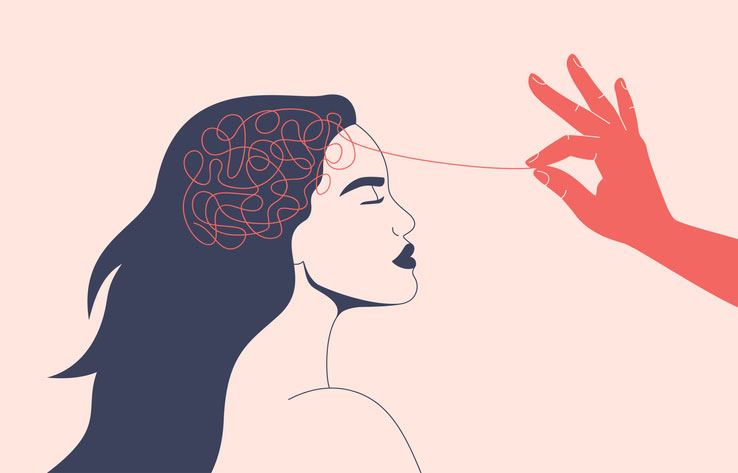How to Prepare for an ABA Job Interview: 7 Crucial ABA Interview Questions To Prepare for
Preparing for a job interview in the field of applied behavioral analysis comes with its own brand of anxiety. No matter the specific job, recruiters typically look for candidates that exhibit a blend of emotional intelligence and scientific know-how. On top of that, professional certification is often a must. As a result, ABA interview questions can be intimidating without proper preparation and rehearsal.
To walk into your next (or first) interview with confidence, here are seven ABA interview questions to prepare for and interview insights into three specific fields behavioral therapists often work in.
- Common ABA Interview Questions
- Plan For More Questions Based on the Field
- Find Out About More Careers in Applied Behavior Analysis
Common ABA Interview Questions
People with degrees in applied behavior analysis can work in different settings, but interviewers for almost every job like to inquire about applicants’ emotional connections to the field, experience, and knowledge of core ABA concepts.
Why Did You Choose Applied Behavior Analysis?
For many, behavioral science is a calling instead of just a career choice, so interviewers sometimes like to gauge how invested in the field applicants are. That investment might stem from one’s own personal struggles, obstacles faced by loved ones, or deep-seated beliefs about advocacy. Being open and honest about these motivations can be a great way to start an ABA interview.
Personal questions like this can also be great opportunities to connect your personal traits to your reasons for entering the field. Behavioral therapists often need great amounts of empathy and patience when helping patients. These are traits interviewers might be looking for, so if you embody them, don’t be shy about putting that on display.
What Is Your Work/Educational Background?
Different roles have different requirements, so being clear about your credentials is key. Try to cover:
- If you’re a BCaBA, BCBA, BCBA-D or other level of trained professional
- Where you earned your degree or certification
- Specializations you have studied
- Past internships or volunteer opportunities
- Relevant past jobs emphasizing why changing jobs is important to your professional development
- Ongoing professional relationships that foster continued learning
Many of these points can be covered in a resume or CV. Interviewers hopefully reviewed these documents beforehand, so asking about them gives you the opportunity to explain why your accomplishments are important to their organization.
How Do You Build Trust with Patients?
Building positive therapist/client relationships is vital to enacting behavioral change. While there are certainly recommended and scientifically-backed ways to pair with clients, each client is a person with their own preferences and histories.

Employers may want to know how you pair with patients creatively, especially in situations when patients come from backgrounds full of abuse, neglect, or developmental roadblocks. Using examples from your personal or professional past, explain how you build trust and how that trust has impacted your clients’ progress.
What Techniques Do You Use To Decrease and Increase Behaviors?
To follow up general ABA interview questions, interviewers typically move on to questions focused on your experience with specific behavior-influencing principles like:
- Extinction
- Forms of differential reinforcement
- Different schedules of reinforcement
- Discrete trial training
- Redirection
- Modeling
Listing a few different methods or concepts can be a great way to demonstrate knowledge, but resist the urge to throw around buzzwords without context.
For instance, consider the four forms of differential reinforcement. If you give textbook definitions of them, you might not be setting yourself apart from other qualified applicants. As you explain your understanding of them, cite specific ways they can be used in your new job and how you’ve used them in the past.
Remember: When employers ask about specific techniques you use and are familiar with, they’re also feeling out how you conduct therapy sessions. Are you knowledgeable yet flexible? Do your techniques line up with their goals?
Describe a Difficult Situation and How You Handled It
ABA interview questions about unexpected scenarios can really make or break an interview. Generally, interviewers use them to separate good candidates from great ones. It may be hard to find the silver lining in them, but through the right lens, difficult scenarios can be testaments to your professional prowess.
You may have had more than a few difficult experiences even if your ABA career has been short. If you can, pick a situation that:
- Demonstrates adaptability and empathy.
- Shows willingness to ask for help when needed.
- Puts your knowledge on display.
- Is an example of your openness with patients, families, and coworkers.
Don’t feel pressured to pick an example that fits all criteria. Just try to choose one you can speak about with perspective and positivity.
How Do You Deal With Self-Care?
Whether you’re applying to be a social worker or special education assistant, ABA careers can be rewarding. However, they can also be emotionally taxing.
In 2018, peer-reviewed psychology journal Frontiers in Psychology published an analysis of various studies focused on caregiver burnout. In one survey, 56% of psychologists, case managers, and social workers reported emotional exhaustion. Another study found that 40% of school psychologists faced similar challenges.
Given those statistics, employers may ask behavioral therapists how they deal with burnout or emotional fatigue. Newcomers may not have a clear answer, but it’s a very personal question that warrants thought.
Remember: When questions about burnout come up, it can be a good time to open a dialogue about how potential employers support staff. Their responses may give you valuable insights into their overall workplace culture.
Do You Have Any Questions For Us?
After a potentially nerve-wracking interview, applicants may be tempted to respond to the question “What questions do you have?” with a quick no and a handshake. However, having a few questions yourself may work in your favor.
According to the Indeed editorial team, asking questions during an interview can, “illustrate your knowledge of the company and industry, along with your drive to excel in the new position.” In that way, questions can help interviewers remember you as motivated and attentive.
Lasting impressions aside, you may want to think about some things that could impact your decision to take the job or your ability to carry it out. Ask about:
- Training opportunities
- Caseloads
- How long employees have been with the company
- Service areas for employers that provide in-home behavioral therapy
Depending on where you are in the interview process, it may also be a good idea to tactfully ask about pay. Ultimately, you want to walk away with all of the knowledge needed to make an informed decision about your future.
Plan For More Questions Based on the Field
To prepare for an ABA job interview, it’s important to understand the nuances of your chosen field including the populations you might be serving and the skills professionals need to serve them successfully.
 Some roles require bachelor’s degrees while others require master’s degrees, doctorates, and other certifications as outlined by state ABA licensing requirements. Here are a few other topics that may come up in your interview depending on the specific role you’re applying for.
Some roles require bachelor’s degrees while others require master’s degrees, doctorates, and other certifications as outlined by state ABA licensing requirements. Here are a few other topics that may come up in your interview depending on the specific role you’re applying for.
Education
ABA professionals in education often find careers as special education teachers or assistants, counselors, and school psychologists. In this context, interviewers may ask about:
- Lesson planning.
- Dealing with parents.
- Coordinating with teachers.
- Helping students with autism, ADD, and other neurological differences socialize.
- General classroom management.
ASD (autism spectrum disorder) alone affects up to 1 in 44 children according to CDC statistics. ABA interview questions for educational roles may heavily center around supporting children with ASD and developmental disorders.
Social Work and Human Services
Human services specialists work with different branches of the justice system, rehabilitation centers, state-funded social services departments, and victim advocacy firms. Expect interview questions about:
- Approaching behavioral therapy in a family context.
- How socio-economic factors play into behavioral science.
- Dealing with clients who may be resistant to therapy.
Social workers typically work with a wide range of government offices across their states and counties. They may be expected to learn about connecting patients to the services these offices provide.
Psychology
Every subsection of patient-focused psychology, from child behavior therapy to substance abuse counseling, needs therapists and assistants with degrees in applied behavior analysis. Additional ABA job interview questions in this field might encompass one’s knowledge of:
- Cognitive behavioral intervention.
- How psychotherapy can help patients overcome personal issues.
- Anxiety, depression, and other mental health issues.
In 2020, 41.4 million Americans received some sort of mental health counseling. That’s more than ever before. Qualified ABA therapists could play a vital role in making mental health even less of a taboo subject.
Find Out About More Careers in Applied Behavior Analysis
Careers in behavioral science aren’t limited to a handful of therapy-based fields. ABA professionals can also work in clinical research, marketing, the criminal justice system, and other places where statistics fail to tell the whole story of the vast and varied human experience.
Find out about more careers open to ABA degree holders and how your calling can empower you to make tangible differences in people’s lives. From there, you can prepare for interviews, exams, and degree programs that could put you at the center of making the world more equitable and more understanding.





